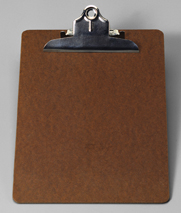The costs and harms of drugs are likely increasing in the UK, according to Dame Carol Black’s Review of Drugs, for the Home Office.
The work paints a bleak picture of routine drug misuse, at a (for the year 2017-18) total cost related to illicit drug use in England of £19.3 billion, due mainly to crimes and law enforcement, and the treatment of drug users; and their deaths (drug-related deaths are at their highest level ever).
Background documents speak of heroin and crack markets as closely linked to violence, ‘likely due to the large financial rewards on offer, the high levels of deprivation associated with heroin/crack affected areas, and the use of young people’, namely ‘county lines’ exploitation of street dealers and drug runners. Although the review notes a recent increase in seizures of such drugs, ‘heroin seizures by police forces has fallen considerably in recent years despite usage remaining high. This indicates that heroin suppliers may be effectively avoiding detection by law enforcement’.
Other findings point to the issue getting worse. Heroin deaths have more than doubled since 2012 and are now at their highest level ever; of about 300,000 users of illicit opiates and/or crack cocaine (OCUs) fewer that need treatment are now receiving it compared to five years ago.
The review provides detailed data on the illicit drug market, its associated harms and the ‘interventions’ to use the jargon, to tackle and respond to these ‘harms’, to use another jargon word.
The themes of her study show how wide-ranging are the effects of drugs on the UK – individual and societal ‘harms’, the production of drugs and their trafficking to the country; and distribution around the UK. Although Middlesbrough and Blackpool are named as having the highest rates of illegal drug use; and the ‘North West and North East now have the highest rates of illicit opiate and/or crack cocaine use, with the North East seeing a sustained increase in use over the last 15 years’. The other places in a ‘top ten’ of high drug use are Hartlepool; Blackpool; Hull, Bristol, Liverpool and Wirral, Bournemouth and Stoke=on-Trent.
By contrast, whereas the capital may be popularly seen as the centre of social woes, at least parts of London and surrounds have lowest rates of drug misuse.
With a drug market comes ‘drug-related violence’, and illicit drug market revenue. Drug use may be ‘problematic’ or ‘recreational. There has to be drug treatment and recovery from dependence; yet there is drug use and prisons (‘synthetic cannabinoids are closely linked to violence specifically within prisons’), including among children and young people.
For the review evidence pack and summary visit https://www.gov.uk/government/publications/review-of-drugs-phase-one-report.
Response
In response, the Home Office stressed law enforcement response to county lines; and a Prime Minister-chaired taskforce on crime and justice. Home Office Minister for Crime, Policing and the Fire Service Kit Malthouse said: “I’m grateful to Dame Carol for producing such an accomplished piece of research. The findings, which we will discuss today, are troubling and paint a stark picture of how illegal drugs are devastating lives and communities, and fuelling serious violence.
“We are already taking tough action to combat county lines and violent crime and to disrupt and prosecute the organised gangs that bring so much misery. But clearly we all need to do more. Following this valuable review and summit we will take further action at pace, bringing together partners from across government and beyond to address the challenges head on, based on the very best evidence and expertise.”
Kit Malthouse meanwhile has chaired a UK ‘drugs summit’ in Glasgow. The Department of Health and Social Care will commission a further drugs review, on prevention, treatment and recovery.
Almost a third of homicide victims and almost a third of homicide suspects were found by the police to have been under the influence of either alcohol or drugs at the time of the offence, says the Association of Police and Crime Commissioners (APCC), which has published ‘Alcohol and Drugs In Focus’.










